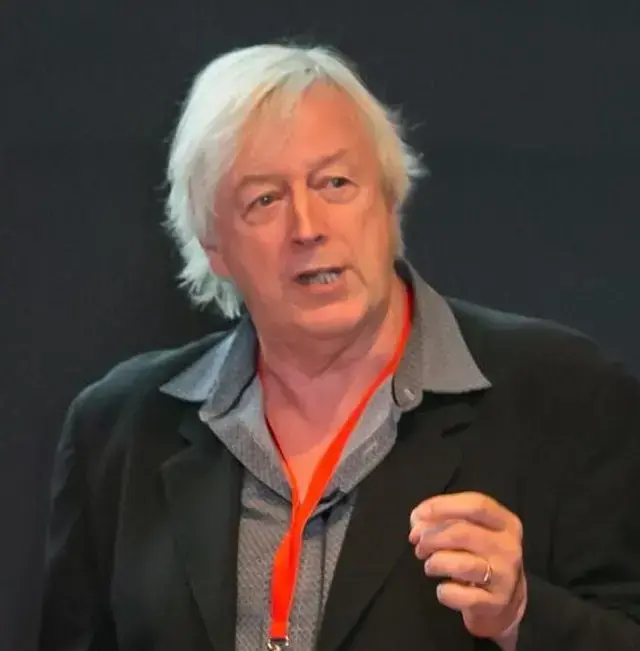A tribute to George Smith, 4th March 2012
George Smith, writer, colleague and friend, died unexpectedly on 2nd March 2012 after a long illness.
- Written by
- Ken Burnett
- Added
- March 05, 2012

We returned this afternoon from the marriage of George's youngest daughter Jenny to Aaron Fenell at the Winters Barns in Canterbury. The wedding was a roller-coaster of emotions, both draining and spiritually uplifting; the festivities marred of course but not spoiled by the death on the previous day of the father of the bride, George Smith.
We came home to see many tributes to George posted on Twitter and various Internet sites from friends and admirers around the world. George was always leery of social media so we fear he might have felt this a bit unseemly, would have railed against it but, secretly, he'd have been both intrigued and chuffed. He was also a private man embarassed by limelight, not a seeker of personal accolades. So he'd have dismised those with a joke too, though secretly in his heart he'd have been hugely pleased.
George's life deserves celebration for sure, so we'll have lots to say about him in coming months. But rather than rush into anything just now we feel we should simply link SOFII readers to the many tributes to George that have sprung up in the last 24 hours, and to link you too to the stories that we have already from George on the SOFII site. For they are magic and priceless. George was a massive SOFII supporter and a real help to us from the moment we started to put SOFII together.
Today though we would like to tell you a little bit about the great triumph of human spirit that was Jenny and Aaron's wedding.
It is a huge unfairness that, after such a long and brave battle against a terrible, remorseless illness, George died on the day before the wedding of his beloved Jenny. Aaron's family and friends had come over from Australia. A lot of planning and energy had gone into preparations for this special day and George was looking forward to it more than most. The family decided that, as George would have wished, the wedding should go ahead exactly as planned.
George knew what was happening and was determined that his absence should not blight Jenny's special day, so by common consent of family and all the guests, it was not allowed to. The wedding was instead a joyous celebration quite remarkable to see and very moving. Truly, a triumph of optimism over adversity.
George's last words to Jenny were, 'Have fun'. As it turned out, the wedding was really great fun, largely because the spirit of George was everywhere, ensuring that it would be. That and the enormous courage and cheerful determination of Stella, Jenny, Kate, Adam and their families. Joe, Charlie, Marie and I had set off in the morning with heavy hearts, uncertain as to how the day might develop. Initially it was a sombre gathering as word of George's death spread. But following a moving, encouraging oration from George's son-in-law Neil in which he reminded guests that this was Jenny and Aaron's day and that George had determined it should be so, by early into the event the mood had changed completely. George's great friend John Hambley movingly and humorously gave the speech George would have made as father of the bride. Aaron's brothers toasted the bride and had us in stitches. Stella, George's wife, spoke passionately about the fine young couple and there was not a dry eye in the house – but tears of joy, mostly. We then danced, sang and laughed past midnight. It wasn't difficult to do.
George would have loved every moment of it. As Kate Mazur put it, it turned out to be a day for all to remember, not one to forget.
Stella has decided that, as it will come so soon after the wedding, the funeral will be a private family affair but that, later, an event should be held to celebrate George's life and work. So she has asked a small group of his friends to organise this. We won't rush but will let things settle and an announcement will be made soon.
So, we look forward to a celebration to come, one that will record why George Smith was such a great man so universally admired by his peers. It will celebrate some of the finest writing about direct marketing, fundraising and life in general that there has ever been. And it will remind us all of some of the most powerful arguments ever put forward for the rigorous professionalism of our causes and the noble aspiration to excellence that George believed should characterise all fundraisers, as communicators of something he truly valued, that he would call, 'stuff worth doing'.
Links to other tributes to George


















